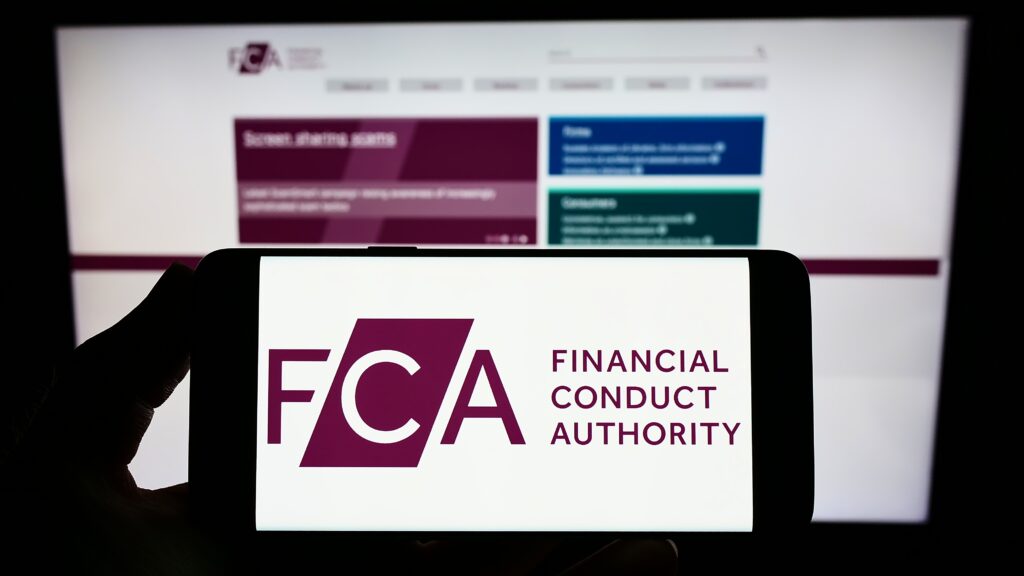Ibrahim Khan of Islamic Finance Guru discusses why Muslims are so vulnerable to financial scams and gives practical advice on how to avoid them.
5Pillars broke the news earlier this week of an alleged Ponzi scheme being perpetrated in our community, with up to £10m being potentially at risk of loss as we speak.
I want to say I am surprised, but I’m not.
This article is not going to be a direct comment on the breaking news, but instead around scams in general, where I think future scams and scandals will be coming from, and, most importantly, how to recognise and avoid a scam.
Why we fall victim to scams
As a community we are extremely susceptible to scams for three reasons:
- We are still actually a community, with a strong family, friend and local ties network. This is something to be proud of in an increasingly individualised and lonely Britain. But it also makes us very vulnerable.
- We, it seems to me, more than any other community lean in on the “get rich quick” bandwagon. Therefore we are ready to believe when someone claims fantastical claims.
- We are, unfortunately, woefully undercooked in our financial education.
And the thing with financial and investment scams is – they need to create legitimacy and trust for it to work.
Subscribe to our newsletter and stay updated on the latest news and updates from around the Muslim world!
So what better way of creating trust than to have your own family referring you to this scammer?
And what’s even better? That the scam is cloaked in a garb of Islam, piety and religion.
And finally, when a proposal is coming to you like this, and you don’t know your stocks from your sukuks, you’re like a rabbit in headlights. You have no certain information to anchor yourself to, so in absence of that, you give in to the positive vibes you are getting and trust in that.
And those missteps are today costing some people £100k+ in losses.
Side note: if you are one of these people who have fallen victim to a scam, I know it’s hurtful and possibly slightly embarrassing, but if you can find the courage within you to speak out, it means a lot and can save countless others their hard-earned money.
Where future scams are coming from
There are four key areas of concern for me right now:
- Future Ponzi schemes
- Crypto
- Fake AI impersonations
- High ticket courses/coaching/communities
Ponzi schemes
The first of those is Ponzi schemes. They are as old as communities themselves and they will swing around again in a different guise in due course.
The way to avoid them is through financial education. Because if you’re surrounded by folks who believe that Bigfoot is real, soon he will become real to you. But if you anchor yourself to folks who are grounded in facts, and you have a more reliable lens through which to view the world, you’re less likely to be duped.
And a message to the future founders of Ponzi schemes: you probably are reading this and thinking “that’s not me, I can’t believe someone would do this to vulnerable people.”
But you know why you will end up in the same place? Because you made crazy promises to investors.
You started off with sincere intentions, and then you saw that if you make a crazy promise on social media, the click through rate goes crazy. And then you thought “as long as I can actually convert these leads, I am going to make good on these crazy promises.”
And thus the descent into madness begins.
So a sincere message to you: do not buy into the social media hype one-upmanship. It does not end well.
Crypto Scams
The second area of concern is crypto. We are, it would seem, finally entering into another bull run post-Trump election. This is a time when fortunes will be made and lost – and quickly.
Whenever money – especially money based, often, on nothing more than hype – is changing hands this fast, scammers will naturally be drawn to it.
The most common crypto scams can be avoided if:
- you do not invest in something someone has DMed you about. No legitimate company is going around DMing you.
- You do not click links others send you. And instead, you search for reputable crypto exchanges yourself and buy and sell crypto via there.
- You generally avoid putting your money into tiny random altcoins. Or if you must do that, you don’t put huge amounts of your portfolio in there.
AI Impersonations
The third area of concern is AI impersonations. IFG have unfortunately already seen (rather poor) attempts at scammers attempting to use AI to impersonate me. The technology is getting better and better each day, and scammers will also improve.
So, once again, do not believe your eyes alone.
Instead, control the path.
Sure, you might be seeing a really convincing AI of me telling you transfer crypto over to you. But look at where it is hosted. How did you come across this? Were you sent a link? Did you see an ad?
Take your time before investing. Take a week if you need to. Don’t get pressurised into investing fast. Anyone doing that – especially over DMs, Telegram, WhatsApp – is likely a scammer.
High ticket courses/coaching/communities
I have thought long and hard about including this category in here, but ultimately I have. Here’s why:
High ticket course, coaching, communities are not scams. Let me repeat: they are not scams.
Sometimes they even work, and many people find them useful. And just because something is really expensive and premium doesn’t automatically make it a scam.
But. There’s something off about the whole thing. The free “top of the funnel” webinar. The hard sell. The upsell after that. The crazy prices for the products. The promise of success and riches without very much work.
Anyone who is from a professional investing or legal background runs a mile from this stuff.
There are now multiple Muslims across the world who are leaning into this – learning from the mainstream equivalents.
People who charge £1,000 for 5 minutes of their time. People who have come out of nowhere to apparently incredible success. People whose videos are well-shot, they are well-groomed and well-dressed. People who associate with other high-trust figures to bask in their reflected authority.
And I am genuinely worried about this trend.
The influencers who are going down this path are, as far as I know, sincere. But it is a slippery slope.
From success at selling a legitimate course at £5k, to letting that success go to your head and moving onto £25k, £50k, £100k products instead – largely selling the same thing still.
Sooner or later that is going to come bite you.
It’s not technically a scam, but “over-priced” and “mis-sold” is probably pretty accurate. And it’s a slippery slope from there into a full-on scam. All it takes is severe financial stress, severe imposter syndrome, and some mental health pressure. And, voila, a sincere Muslim has become a scammer.
So folks, I’m not naming any names, but this message is targeted at any Muslim influencer on this path, or thinking about monetising their social media.
Do things the right way – not the wrong way. And if you don’t know which is which – don’t do anything at all. Your reputation is worth more than that.
How to spot a scam and avoid it
There is no easy way to completely avoid a scam unfortunately. These scammers are absolutely ruthless, very tech-savvy and constantly innovating.
And the older you get, the more at a disadvantage you are, because our wealth is necessarily stored and accessible only with technology. So if you’re over 50, or just generally not that tech-savvy, you need to pay particular attention to this section.
Here is a non-exhaustive list of strategies and techniques you can use to generally avoid losing money to scams:
- If someone reaches out to you – hang up or discontinue the conversation – and figure out a way to reach back out to them.
- Sometimes, to be fair, legitimate companies will reach out to you as well, so this is not a blanket ban on responding to them. But if they are asking you share personal details, or to click on links, or share passcodes or keys to your phone, or make unusual transfers of money – just hang up.
- There is no shame whatsoever in consulting with someone else – perhaps more tech-savvy, investment or law savvy. I know it feels humiliating and embarrassing, but you don’t want to lose your life savings because you didn’t want to be embarrassed.
- Go on the Financial Conduct Authority register (again, type it in yourself into the browser) and check if a firm you are dealing with is listed there. If it listed, it means that the UK financial regulator (or the equivalent regulator in your country, e.g. the SEC in the USA) has reviewed and approved this firm’s activities and is keeping a regular eye on them. This is a massive signal that this is a reputable firm. This does not mean that any firm that is not on there is not legitimate. There are legitimate firms who are not FCA-authorised too – particularly those that are starting out in their journey. But, frankly, any firm of significant scale in any area of investment, where they are asking for your money, really should be FCA-authorised.
- Make test payments before you wire the entire sum over. Sometimes scammers can intervene and change bank details over email.
- If someone is offering you crazy returns – e.g. 50-100% per annum – increase your due diligence and slow down even more. There are rare examples where such investments can and do exist – but they are extremely extremely rare – and chances are you, as an amateur investor, are not getting access to them and you’re just getting scammed.
- When you initially invest, invest a smaller portion of your portfolio – and then increase it in volume as you become more comfortable with things. This also gives you time to talk to others in your network about what you are doing and get their feedback.
- If you are investing larger amounts (£100k+) try to meet in person, or over a video call. You will pick up major red flags if there are any this way. Many scammers hate getting onto a call or video.
- If you are investing larger amounts, try to get a trusted professional involved to help you vet things. This could be your accountant, lawyer, financial advisor or tax advisor. These folks deal day to day with investment firms and so will have a slightly better nose for sniffing out issues.
- Keep your passwords as safe as possible, use two-factor authentication, facial recognition, fingerprint ID etc. Change them as regularly as possible (without forgetting them!). Use strong passwords.
- Don’t click links people who are not added to your contact list send you. Understand who they are before doing anything.
Final Thoughts
Phew, that was a rather scary article to write (and presumably read)!
The good news is that there are many many reputable firms out there. The returns they offer don’t get much more exciting than 20-30% per annum – and even that is likely to be at the most aggressive end of the spectrum. What you should get comfortable expecting from investment firms is between 4-12% returns per annum. The returns may not be as much as the scammers offer – but at least you are highly unlikely to lose all your money.
Please share this with your friends and family so that we increase the education levels across our community.
This article first appeared on the Islamic Finance Guru website.
























